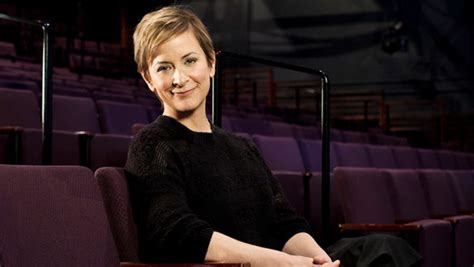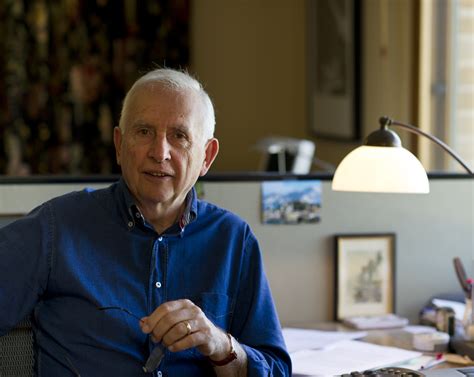A Quote by Garry Winogrand
Let's say that what's out there is a narrative. Often enough, the picture plays with the question of what actually is happening. Almost the way puns function.
Related Quotes
To read fiction means to play a game by which we give sense to the immensity of things that happened, are happening, or will happen in the actual world. By reading narrative, we escape the anxiety that attacks us when we try to say something true about the world. This is the consoling function of narrative — the reason people tell stories, and have told stories from the beginning of time.
Because for me to go fully experimental, it would turn into an artist book actually. And I'm not opposed to that. But I wanted to toy with the conventions of traditional narrative and sometimes to do that all the way, you have to actually utilize traditional narrative, I think - or it's one way to do it.
We think is happening in the brain, the way I like to think about it is, it's almost like, you're brain is going through all these stages of sleep and it's developing in children so fast that it's almost like you're shifting gears in a car. And at some point, you actually stall out a little bit, and that's kind of what happens during a night terror.
We're affable guys in They Might Be Giants. We're not gonna do the periscope-down thing, but it's a little bit mind-bending. The biggest struggle is trying to figure out a way to back up far enough in your answer that it can be read without the context of the question. Every declarative statement you see that comes out of an interview with somebody is actually in response to a question. So it's sort of like this very real interpersonal dance where one of the people involved is invisible.
What I love about Inuit carving is that it's so narrative, but it doesn't have the temporal dimension of an illustrated picture, where it feels like something happens before or after. Everything is happening in the sculpture, and you can hold the whole story in your hand. A lot of these sculptures are small enough that you can hide them in your hand completely so you're not looking at them, you're just feeling them. I
When I was a student at Cambridge I remember an anthropology professor holding up a picture of a bone with 28 incisions carved in it. "This is often considered to be man's first attempt at a calendar" she explained. She paused as we dutifully wrote this down. 'My question to you is this - what man needs to mark 28 days? I would suggest to you that this is woman's first attempt at a calendar. It was a moment that changed my life. In that second I stopped to question almost everything I had been taught about the past. How often had I overlooked women's contributions?




































